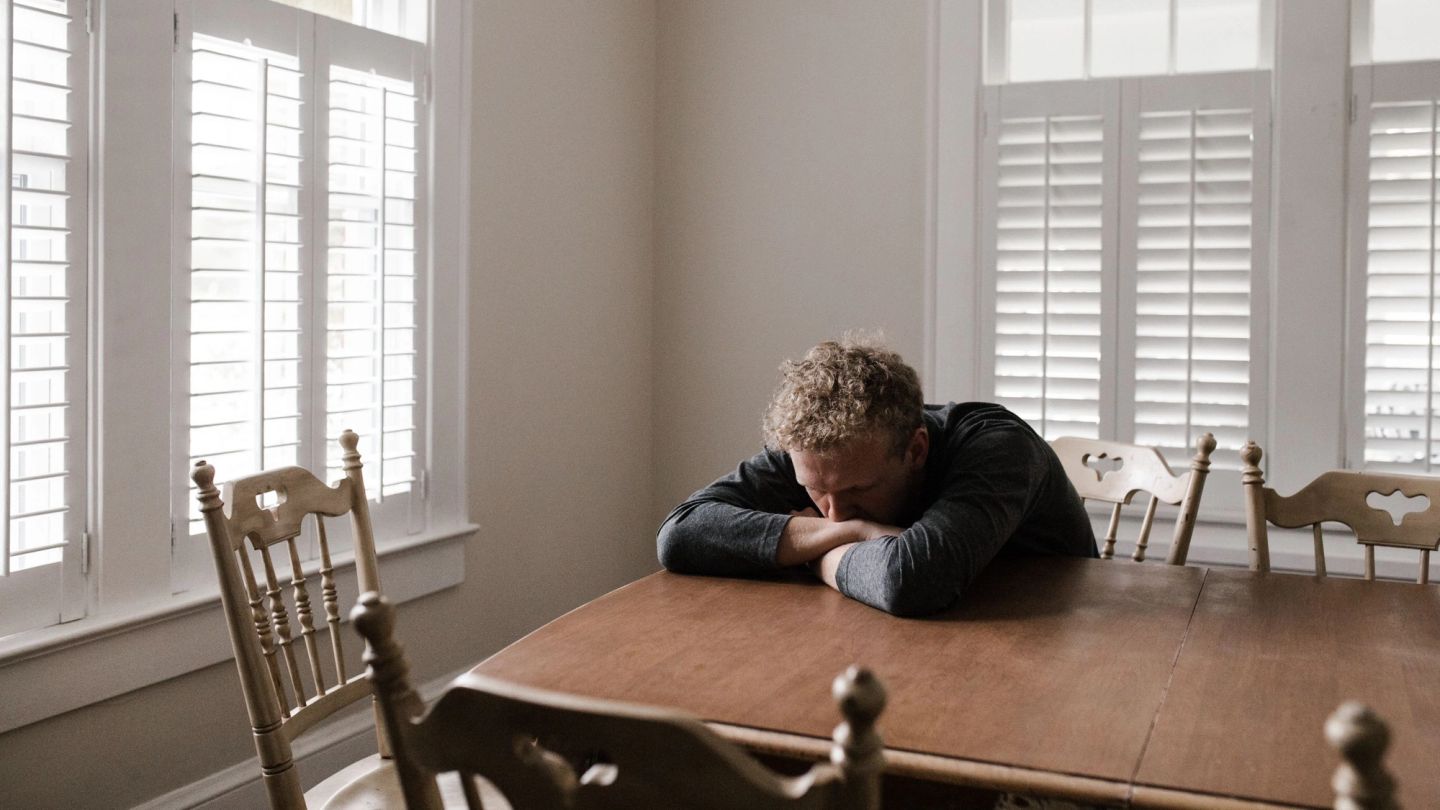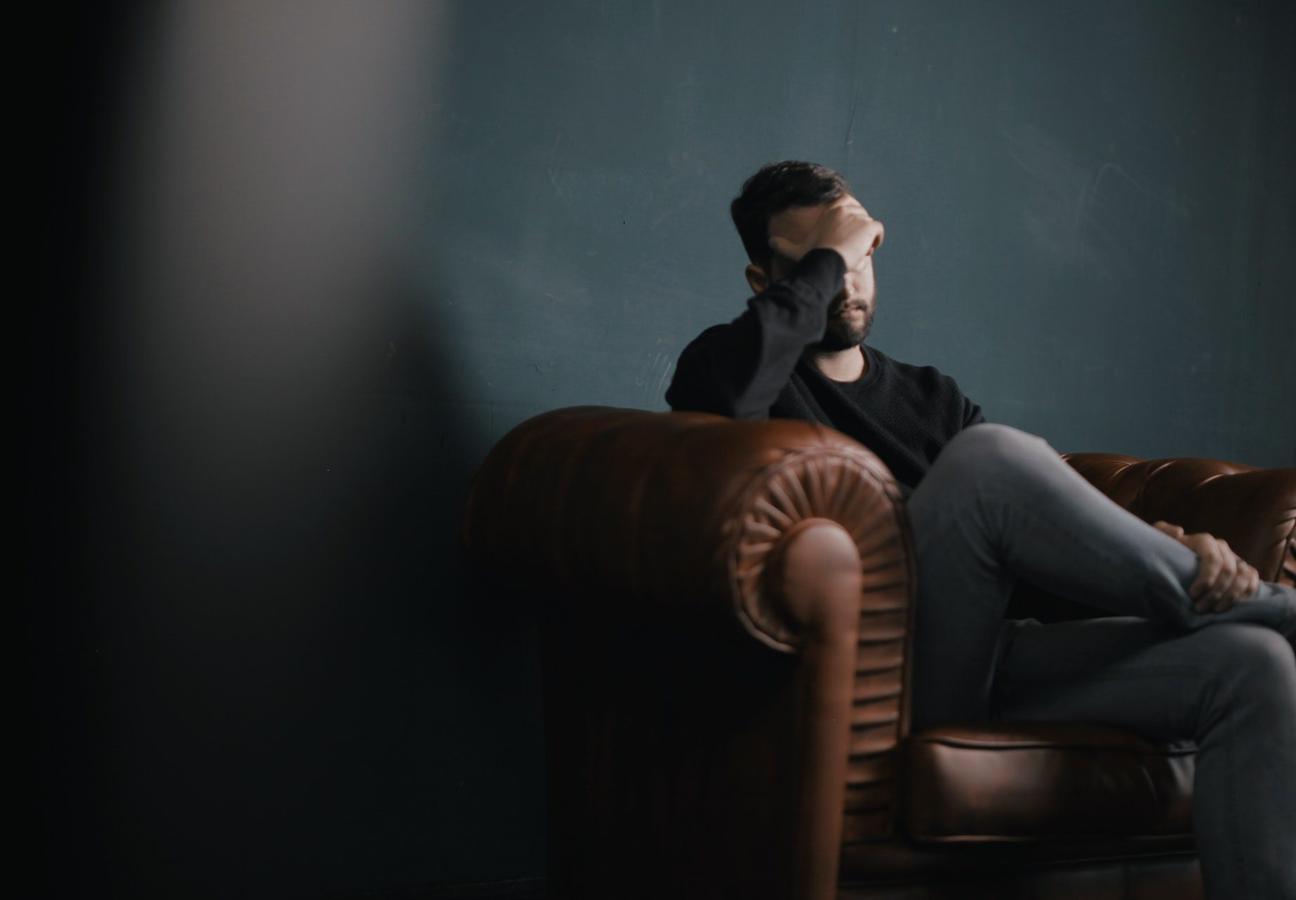

“There was nothing to take these thoughts out of my head”: Inside the COVID-19 mental health pandemic
The mental health effects of the coronavirus pandemic have been devastating, and wide-reaching; and we feel it needs to be spoken about. Trigger warning: suicide.
Words: Izzie Price
Men’s mental health has long been a topic for urgent discussion. In England alone, approximately one in eight men experiences a common mental health problem such as depression, anxiety or OCD; and studies have demonstrated that in the UK, men are three times more likely to take their own lives than women. Safeline described men’s mental health as a “silent crisis”, and noted that suicide is the single greatest cause of death for men under 35. And the pandemic has, for many, been an exacerbation — or even a cause — of severe mental health struggles.
During the first UK lockdown last year, Matt*, 27, struggled deeply with depression. “I lost motivation to go outside,” he says. “I lost motivation to wake up in the morning and do anything interesting. I was just killing time, and waiting for the days to pass. I didn’t think anything was enjoyable, I didn’t think anything was worth it.
“We had the heatwave, it was nice weather and everything; but I didn’t want to go outside. I just wanted to stay at home, and hide away from the world.”
Matt’s mental health struggles were directly affected by the isolation that naturally resulted from the lockdown. He was living alone, in a studio flat, at the time; and being alone impacted his mental health to a significant degree. “Intrusive thoughts about insecurity and self-esteem would enter [my mind], like they had in the past; but because [I] didn’t have any distractions, like going out with friends or running errands — my whole life was within four walls, in this studio — there was nothing to take these thoughts out of my head. They just kept reverberating around, and growing in strength, and there was nothing I could do. I would go for a walk just to stop my mind from spiralling; that would be the only change I could impose upon myself to make myself snap out of it.”
"Missing out on regular human touch can have serious and long-lasting effects"
Regrettably, Matt is not the only one to struggle with his mental health as a direct result of the pandemic and the lockdowns it necessitated. Of course, every lockdown was crucial in order to get the virus under control; but the pandemic has wreaked havoc with mental health across the world. Niels Eék is a psychologist and the co-founder of mental health and self-development platform, Remente; and he feels that the loneliness caused by the pandemic is a huge cause for concern. “Studies have found that missing out on regular human touch, something which researchers call ‘touch deprivation’, can have some serious and long-lasting effects [on our mental health], such as increased feelings of loneliness, anxiety, detachment and even problems with sleep,” he tells Gentleman’s Journal.
The pandemic has affected us all, in one way or another. And where men’s mental health is concerned, urgent work needs to be done in terms of listening, responding and raising awareness of the issue.
Vital work is already being done in this regard. Journalist and author Poorna Bell has campaigned around men’s mental health since 2015, when her husband, Rob, took his own life; and Mental Health Advocate and Breathwork Coach Jamie Clements has long placed men’s mental health at the forefront of his agenda. He’s the Founder of The Breath Space; and also of the Man Down podcast, which aims to be the antithesis to ‘Man Up’, and focuses on men’s mental health: demonstrating that vulnerability isn’t rooted in weakness, but in strength.
"We've reached a point where the advice to men to 'speak up' isn't sufficient"
“At the heart of all of the work I do around men’s mental health is emotional repression,” Clements tells Gentleman’s Journal. “The way in which society has operated for so long now has created an archetype of masculinity where we idolise and actively encourage emotional repression, stiff upper lip and disconnection from our true inner experience. [I think we’ve reached a] point where the advice to men to ‘speak up’ isn’t sufficient. That advice implies that people know what they’re really feeling and I think sadly for many of us (my former self included), we’ve become so disconnected from our emotions that we don’t know what we’re really feeling — and this is what we need to change.”
And where COVID-19 is concerned, Clements can certainly attest to the way the pandemic — especially the multiple lockdowns — has exacerbated mental health difficulties for many, such as those described by Matt. “In having our ‘normal’ lives put on hold, we have lost all of those things we might have once used to distract us from negative emotions,” Clements explains. “As a result, we’ve been confronted with our thoughts more than ever before and have lost a lot of things that we think make up our identity, and this has been incredibly difficult for many people.”

The issues caused by the pandemic — and those already existing around men’s mental health — have been felt by Hugh*, 26, who has tragically lost two cousins in the past year.
“One of my cousins was working as a carer,” says Hugh. “He had previously been a drugs user — quite a hard drugs user — but he’d gotten over it. Prior to lockdown, the general consensus among the whole family was of how well he was doing.”
But the understanding among the family is that lockdown, and the stresses associated with it, resulted in Hugh’s cousin turning back to drugs. “He died of an overdose. Whether or not it was suicide or not is hard to say; but it was an overdose, nevertheless. He died alone, in [his] bedsit, and [I] can’t help but ask whether, if greater human contact were available to him, he would have ended up in this situation.”
Hugh’s other cousin was a student. “He was doing a degree at a good university — which probably wasn’t for him, because he was a bit of a square peg being pushed down a round hole. He wasn’t an academic, and he was struggling to do some of the more academic parts of the course.” Hugh’s cousin tragically ended his life in March of this year. “I think it all basically got too much for him. I don’t know…working virtually on a degree that wasn’t necessarily for him might have tipped him over the edge.”
"I can't help but ask whether, if greater human contact were available to him, he would have ended up in this situation"
The lockdowns had a devastating impact for a great many people. Even more devastatingly, they aren’t the only element of the pandemic to have caused harm to mental health.
Matt speaks of the “continuous exposure to death” that the pandemic introduced to all of our lives. “We were all discussing how many hundreds of people, or thousands of people, had died in the last 24 hours,” he says. “Analysing how they died, where they died, are you going to die, is anyone we know dying or about to die? I still feel the effects of that. Even if you were making small talk with colleagues at work, the only thing you could talk about would be how many people had died, and whether that number is going to get smaller or bigger, and whether we’ll ever be able to see people again.”
And the list of mental health difficulties exacerbated (or caused) by the pandemic continues. Experts have coined phrases like ‘coronasomnia’ for pandemic-induced insomnia, and the word ‘languishing’ has been brought to the fore to describe “a sense of stagnation and emptiness”, as the New York Times put it. “For those among us who regularly suffer from anxiety, the current climate might be exacerbating these feelings,” Eék explains. “Most commonly, concerns surrounding the unstable economy and fearing for our health, or the health of a loved one, are causing us to feel anxious.”
"I'm not ready to fully embrace post-COVID life"
We’re all hoping and praying that the coronavirus pandemic will be eliminated from our lives, one day soon; and the vaccination program is doing wonders in this regard. But the effects of the ‘mental health pandemic’ will be with us for a very long time, and the issues surrounding men’s mental health are ever present. So the question is: where do we go from here? How can we care for our mental health (and the mental health of others) as the UK starts to reopen; and how can we help raise vital awareness around men’s mental health?
Well, one way is by recognising that the reopening — while essential for businesses, industries and for many people’s mental health — isn’t necessarily easy for some. “I’m still very much at the stage where I don’t feel comfortable being with, like, four friends that I know [well],” says Matt. “I barely feel comfortable seeing them indoors because it hasn’t been allowed until now — I’m not ready to fully embrace post-COVID life. But I recognise that other people will definitely feel the need for that.”
Clements can empathise with those experiencing feelings similar to Matt’s. “From a reopening perspective, I think we all need to be mindful that this return to some kind of normality may feel like as big of a shift as coming into lockdown,” he explains. “Significant change brings with it uncertainty; regardless of whether you think the change is good or not.”
And Clements is determined to continue his work with regard to men’s mental health. “[Moving forwards,] I’d like to see a continuation of the positive movements we’ve made towards a fully inclusive view on what it means to ‘be a man’ – to be a man is to be whoever you are in the fullest expression of that and not feeling like you have to tick boxes to fit in,” he emphasises.
"We need to see big policy level changes"
Clements talks, too, of the urgency to move from a reactive approach to mental health, to a preventative one. “This comes at a systemic and societal level and I truly believe we need to see big policy level changes to enable people to be truly happier and more fulfilled,” he explains. One area in need of urgent change of the sort Clements has described is therapy: therapy and counselling vitally need to be both more accessible, and more affordable. “I went through a course of therapy, with a really good therapist,” says Matt. “I got it because I have private insurance at work, and they were able to refer me; but it’s extremely expensive. Now that he doesn’t take my insurance, I can’t see him any more because I can’t pay for it out of pocket.”
And most of all? We need to keep talking about the mental health issues created and exacerbated by the pandemic. We need to keep talking about the vital work that needs to be done with regard to men’s mental health. We need to keep listening; and we need to keep responding. Because while mental health difficulties may not be as visible as the physical effects of COVID-19; they are every bit as real.
*Names have been changed.
If you’re looking to keep reading about urgent societal issues, here’s Justin Baldoni on undefining masculinity…
Become a Gentleman’s Journal member. Find out more here.


